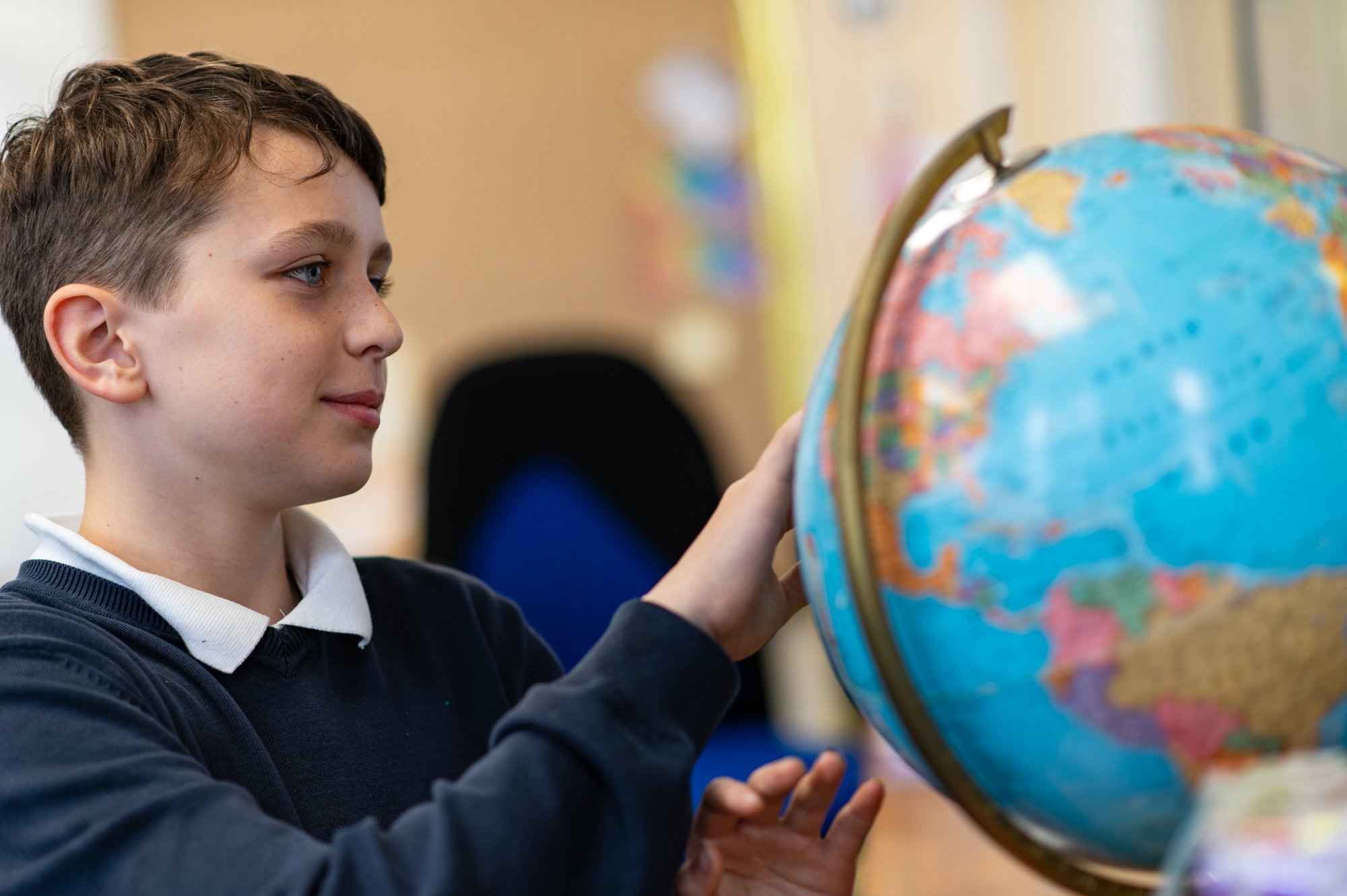
Religious Education (R.E.) at Millfields
Religious Education is an integral part of our Millfields curriculum. Every child will be encouraged to understand the meaning and significance of faith, experience God’s love and develop the spirituality to enable them to live out our Christian values of faith, respect, courtesy and endeavour.
We encourage pupils to develop their sense of identity and belonging with the aim of developing children who flourish individually within their communities and as citizens in a global community. Every child will appreciate and respect others, celebrate differences between individuals and groups and respect and care for God’s creation and the environment.
Our lessons are taught in a variety of ways which allow for a creative approach but also offers opportunities for quieter, reflective work to take place. We focus on and revisit concepts across the years (e.g. God, Good News, Resurrection etc) that allow us to deepen understanding at an age appropriate level. Each year group also spends time considering another world faith and making and links between that faith and their own.
In every class we aim to provide suitable learning opportunities that are matched to the needs of all children. This may be done through providing support, differentiating activities and using a range of teaching and learning styles within lessons. All pupils are encouraged to know about, understand and respond to the important and ultimate questions of life.
How We Teach R.E.
At MIllfields CE Primary School we have adopted the Chester Diocesan Syllabus for RE in line with the Local Authority’s guidelines of what is to be taught. This is supported by the ‘Understanding Christianity’ resource which fulfils all legal requirements and the RE Statement of Entitlement from the Church of England Education Office 2019.
Religious education is the vehicle for living the vision of our church school and pupils can expect that the RE curriculum will:
Engage and challenge them through an exploration of eleven core concepts which are linked to the cycle of the church’s year. These concepts are: Good News, God, Christian Community, Incarnation, Kingdom of God, Forgiveness, Salvation, Resurrection, Discipleship, Holy Spirit, Creations,
Have opportunities to understand the role of foundational texts, beliefs, rituals and practices and how they help form identity in a range of religions and world views
Introduce pupils to a range of relevant disciplines including theology, philosophy and the human and social sciences
Develop confident religious literacy through questioning, debate and explanations supported by Biblical references and sacred texts. Pupils will have the opportunity to visit places of worship to further their understanding.
How do we measure the impact of our R.E. Teaching?
Our RE Curriculum is high quality, well thought out and is planned to ensure progression. Our teachers measure the impact of our curriculum through the following methods:
A knowledge check at the beginning of each unit to see what the children already know
Link each of our core strands to previous learning, to compare and contrast and to review understanding
Start lessons with a recap of key knowledge and understanding from the previous session
Provide opportunities each lesson to use the key vocabulary
Provide opportunities for open-ended tasks, to allow the more able to demonstrate their greater knowledge
Assess children at the end of the unit against key knowledge and learning
The leadership team check that this impact is being secured through monitoring the subject on a regular and frequent basis. The method of monitoring supports the ongoing development of the curriculum. This includes:
Staff subject knowledge, which is audited to ensure knowledge is secure, and additional support provided if necessary
Frequent staff meetings and updates to discuss and evaluate the effectiveness of topics with the subject leaders. From this, medium term planning is amended and adapted to ensure the curriculum remains relevant for the children
A ‘pupil voice’, to allow pupils to contribute to their curriculum content
Monitoring of work against the medium-term plans, so that inconsistencies can be addressed
Tracking of content against the long-term plan of the school, to ensure the full breadth of the curriculum is met
The impact of this is to ensure that children at Millfields understand that Religious Education provides them with a set of values and teaching which are applicable in all areas of their lives and are vital for their future interaction with the global community, as well as their own community, whether it be for personal enjoyment or for work. Children will go out into the community as Christian people making a contribution based on their learning.
For more information on Religious Education teaching at Millfields CE Primary School please use the links below or contact school.